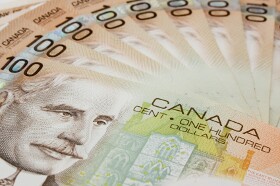The Canadian dollar declined against its most-traded rivals, being the weakest major currency today. One of the reasons for the currency’s awful performance was unexpectedly slow growth of Canadian retail sales.
Statistics Canada reported that retail sales rose just 0.1% in April from March. Core retail sales (those that exclude volatile components, namely motor vehicle and parts dealers) also rose 0.1%. Ahead of the report, analysts had predicted bigger gains for both indicators, by 0.3% and 0.6% respectively. Excluding gasoline stations on top of motor vehicle and parts dealers, sales dropped 0.1%. Such disparity is not surprising considering that sales at gasoline stations, as well as food and beverage stores, were the main contributor to the increase of the headline number.
On the positive side, the previous month’s figures got a positive revision. The headline figure was revised from an increase by 1.1% to 1.3%, while the underline figure was revised from a gain by 1.7% to 1.8%.
Usually, the Canadian dollar follows movement of crude oil prices. But that was not the case today as even the rising prices for crude were unable to bolster the currency.
USD/CAD advanced from 1.3189 to 1.3222 by the end of the Friday’s session, rebounding from the daily minimum of 1.3161. EUR/CAD surged from 1.4894 to 1.5034. CAD/JPY closed at 81.16, down from the open of 81.33 and retreating from the day’s high of 81.58.
If you have any questions, comments, or opinions regarding the Canadian Dollar, feel free to post them using the commentary form below.
Canadian Dollar Reacts Negatively to Retail Sales Report
